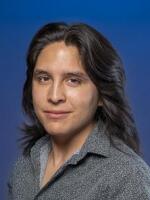Abortion was already going to be a big issue for women's health in the fall election, then in late February, the Alabama Supreme Court increased the stakes. It ruled that frozen embryos can be considered children under state law. Some Alabama clinics then stopped doing IVF treatment, fearing civil or criminal charges.
In Nevada, abortion is legal until 24 weeks of pregnancy, or six months. But what about in-vitro fertilization? Is it covered by or related to laws that protect abortion?
In the 2023 Nevada legislative session, the Democratic majority passed a Senate Joint Resolution seeking to guarantee a constitutional right to abortion, birth control, pre- and post-natal care, and infertility care in the state.
Nicole Cannizzaro is the majority leader of the state Senate and spearheaded reproductive health legislation in the 2023 session. "SJR7 still has to pass in the next legislative session, and then a vote of the people," Cannizzaro said. "But if that passes into law, then there will be a constitutional right that says you cannot deny or abridge access to a whole list of items, including fertility care."
She pointed out that the resolution has not become law yet, however, adding that "we were extremely concerned with what we were seeing in the wake of the (U.S. Supreme Court's) Dobbs decision that overturned Roe v. Wade that, even though we have ... a statutory right in Nevada that says you can receive access to abortion care, up to 24 weeks, anything outside that, that deals with reproductive health falls outside of that statute. So, it could be changed."
Cannizzaro also addressed 2023 legislation seeking to protect Nevada physicians from being prosecuted for providing reproductive healthcare services that are legal here to people from states where those services are illegal. Asked whether that would apply to IVF and the people involved in it, Cannizzaro said, "I think your question is exactly the reason why lawmakers should not be involved in healthcare decisions between women and their doctors."
Leah Kaye, a doctor with the Fertility Center of Las Vegas, said there is a multitude of reasons why patients seek fertility care, from medical conditions that preclude in utero fertilization, to being single parents by choice, to being in a same-sex couple.
"The data that we have from the CDC is the most recent, and it's from 2021," Kaye said, "but (it showed that) in the state of Nevada, there were just under 1,800 IVF procedures performed. That resulted in 765 live born babies that year."
Kaye added that she was getting many calls from concerned patients and practitioners. "It's our employees, other IVF doctors, OB-GYN (doctors), family and friends of patients, previous fertility patients ... It's that grandmother waiting for her first grandchild, who lived under the umbrella of Roe v. Wade and is now wondering, 'How did we let this happen?'"
The IVF community is also consulting with lawyers, such as Kimberly Surratt, a fertility specialist in Reno. Surratt said, "The biggest problem we face is that a lot of IVF is interstate work. Well, I am a Nevada attorney. I am licensed in Nevada and California, and a majority of my work, my clients, are either international or across the United States. So when some people like to say, 'Well, it just happened in Alabama; it's gonna stay restricted to Alabama,' that's not the case."
Surratt explained the ways in which the Alabama Supreme Court ruling has confused interpretation of the law, most having to do with its effectively moving the line at which reproductive cells can be considered a person.
"We don't know where all this can impact and affect us, down from tax (exemptions) to child support," she said. "At what point do we have custody battles?"
These fears are misplaced, according to Melissa Clement, executive director of Nevada Right Life. She said, "Really what happened in Alabama was, the Supreme Court ruled in favor of parents who were very upset — rightfully so — that their frozen embryos, or unborn children, were lost in an accident. And (they) ruled basically on that fact alone."
"I absolutely disagree with that," Surratt said. Calling the act of destroying the frozen embryos "wrongful death" was a "door opening to calling it murder," she added.
Clement demurred on the religious comments made in certain Alabama Supreme Court justices' opinions on the case. But, she added, it behooves Nevada legislators to protect parents from "bad actors" in IVF medicine, such as doctors who have used their own sperm to inseminate unknowing patients.
"Giving somebody a constitutional right doesn't give (them) carte blanche to commit criminal acts," Cannizzaro responded. "We've been told now, since the Dobbs decision, that we are wringing our hands over things that don't matter. Yet, in the wake of that, the immediate reaction was that OB-GYN (doctors) were leaving their practices, and people were unable to get in to see a doctor. Then, we saw them come for Mifepristone (medicated abortion treatment), which is used primarily for miscarriage management. And now we're seeing attacks on IVF. ... We are seeing in steps along the way an effort to strip people from being able to access reproductive healthcare."
Guests: Nicole J. Cannizzaro, Nevada Democratic Senator, District 6; Melissa Clement, executive director of Nevada Right to Life; Dr. Leah Kaye, reproductive specialist, Fertility Center of Las Vegas; Kimberly Surratt, fertility rights attorney, Surratt Law










